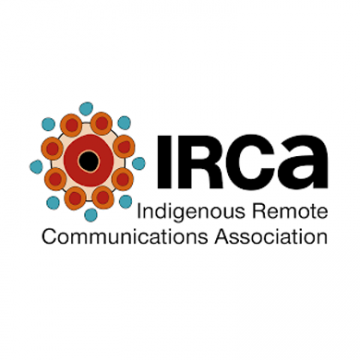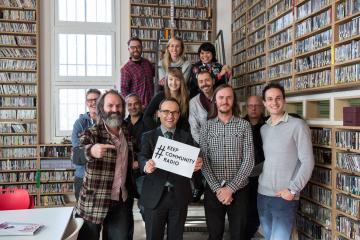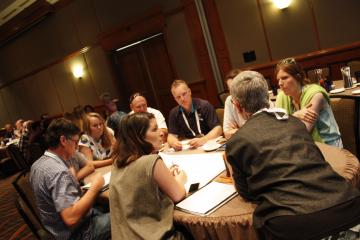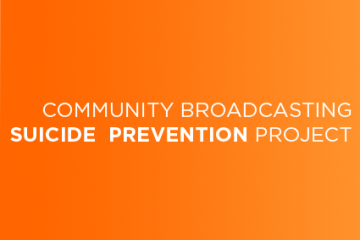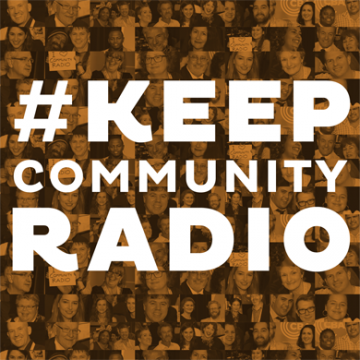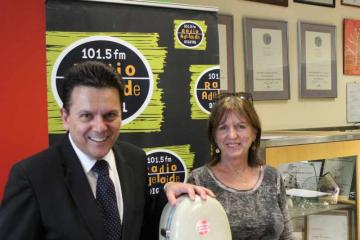Filter by audiences:
Filter by categories:
- Spoken Word Programming (270) Apply Spoken Word Programming filter
- Music Programming (218) Apply Music Programming filter
- Staff & Volunteers (55) Apply Staff & Volunteers filter
- Community Management (53) Apply Community Management filter
- Station Management (39) Apply Station Management filter
- Compliance (31) Apply Compliance filter
- Broadcast Infrastructure (30) Apply Broadcast Infrastructure filter
- Fundraising (25) Apply Fundraising filter
- Sponsorship (20) Apply Sponsorship filter
- Communication (17) Apply Communication filter
- Online infrastructure (16) Apply Online infrastructure filter
- Running Your Board or Committee (15) Apply Running Your Board or Committee filter
- Emergency Broadcasting (14) Apply Emergency Broadcasting filter
- Financial Management (11) Apply Financial Management filter
- Members (5) Apply Members filter
- Complaints & Disputes (3) Apply Complaints & Disputes filter
- IT Management (3) Apply IT Management filter
- Studios (3) Apply Studios filter
- Membership & Subscribers (2) Apply Membership & Subscribers filter
- Studio Best Practice (2) Apply Studio Best Practice filter
- 4426 (1) Apply 4426 filter
- Constitution & Structure (1) Apply Constitution & Structure filter
Filter by tags:
- 4ZZZ (145) Apply 4ZZZ filter
- Suicide Prevention Project (130) Apply Suicide Prevention Project filter
- 3RRR (128) Apply 3RRR filter
- 2FBI (115) Apply 2FBI filter
- 2SER (111) Apply 2SER filter
- 3SYN (107) Apply 3SYN filter
- 3PBS (101) Apply 3PBS filter
- 2BAY (96) Apply 2BAY filter
- 6RTR (95) Apply 6RTR filter
- 3MDR (89) Apply 3MDR filter
- 7EDG (86) Apply 7EDG filter
- 2RRR (76) Apply 2RRR filter
- 5UV (75) Apply 5UV filter
- 2NVR (68) Apply 2NVR filter
- NFDS (68) Apply NFDS filter
- 3CR (65) Apply 3CR filter
- 4FCR (62) Apply 4FCR filter
- 2SEA (59) Apply 2SEA filter
- 3RIM (58) Apply 3RIM filter
- 3NRG (56) Apply 3NRG filter
- 2HHH (55) Apply 2HHH filter
- 2MCR (55) Apply 2MCR filter
- 3RPC (54) Apply 3RPC filter
- 5ZZZ (54) Apply 5ZZZ filter
- 2RES (53) Apply 2RES filter
- 4NSA (53) Apply 4NSA filter
- 5EFM (53) Apply 5EFM filter
- 1ART (52) Apply 1ART filter
- 3JOY (52) Apply 3JOY filter
- 3BBB (51) Apply 3BBB filter
- 3HOT (51) Apply 3HOT filter
- 3INR (51) Apply 3INR filter
- 3WBC (49) Apply 3WBC filter
- 2NSB (47) Apply 2NSB filter
- 5GTR (47) Apply 5GTR filter
- 2BOB (45) Apply 2BOB filter
- 5HR (44) Apply 5HR filter
- 6NME (44) Apply 6NME filter
- 2AIR (43) Apply 2AIR filter
- 2EAR (42) Apply 2EAR filter
- 4EB (42) Apply 4EB filter
- CMTO (42) Apply CMTO filter
- DDN (42) Apply DDN filter
- 3MGB (41) Apply 3MGB filter
- 3UGE (41) Apply 3UGE filter
- 5PBA (41) Apply 5PBA filter
- 3WAY (38) Apply 3WAY filter
- 6HFM (38) Apply 6HFM filter
- 2MCE (36) Apply 2MCE filter
- 5CST (35) Apply 5CST filter
